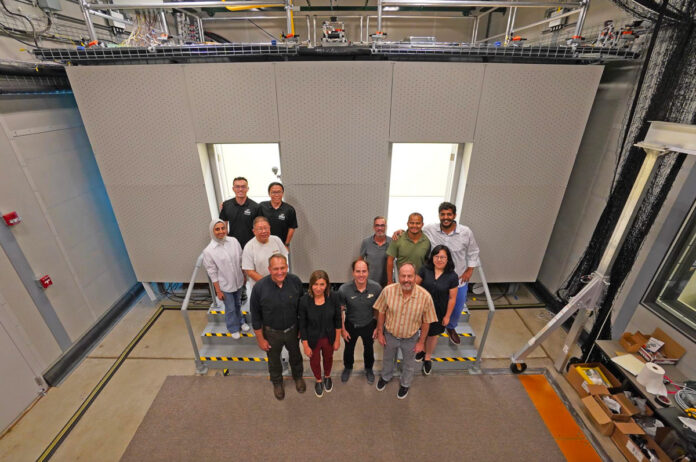NextHouse Takes Shape
The Center for High Performance Buildings at Purdue University is about two years into a project that strives for more efficient ways to incorporate vital systems within a factory built home.
NextHouse organizers are looking for manufacturers and other partners in the off-site homebuilding sphere in pursuit of $160 million in federal funding. “We need better homes that prioritize affordability, sustainability, and resilience,” center director and Purdue Engineering Professor James Braun said. “The only way to do that is to change our paradigm of how homes are built.”
The NextHouse team’s initiative depends on harnessing industry expertise to work alongside its academic efforts “to create a revitalized, fully-automated, and scaled-up factory-built housing industry.”
Combine the Best Elements
Braun said NextHouse is assembling an industry consortium of housing companies, material suppliers, architectural firms, supply chain providers, and governmental stakeholders to continue to build relationships so that there will be a smooth pathway from conducting research and putting into practice its advancements.
He said he envisions NextHouse not just as a housing “think tank” but as a new pipeline of labor and manufacturing processes to help transform the sector.
The team has been “building within a building” since 2022 to work through fully-reconfigurable climate control equipment that is pre-built in a wall. This and similar experiments can be expanded with the planned development of a large factory-lab for prototyping and testing.
“This enables experimentation of construction techniques for modular housing and serves as a training center for workers,” Braun said in a Purdue University release.
The facility will have will a “massive house-sized environmental chamber” called the Housing Environmental Evaluation Testing (HEET) Lab, enabling controlled testing and evaluation of full-scale finished housing products under varying environmental conditions.
NextHouse has been awarded $1 million from the National Science Foundation and continues to compete for the $160 million in funding from NSF’s Regional Innovation Engines program, with a mind toward cementing Indiana and southern Michigan as the Silicon Valley for sustainable, cost-effective housing.
The effort is overseen by Purdue Applied Research Center and includes by Purdue’s Travis Horton and Panagiota Karava, both a professors of civil engineering. University of Michigan, Notre Dame, Michigan State, Ivy Tech, and Lansing Community College have all committed to partnering on NextHouse.
“We definitely have a long history in the area of factory-built housing,” Horton stated in an Indiana business magazine. “We think there are opportunities to go far beyond what has been done today and go to a fully industrialized model for housing.”
MHInsider is the leader in manufactured housing news and is a product of MHVillage, the top marketplace for manufactured homes.










